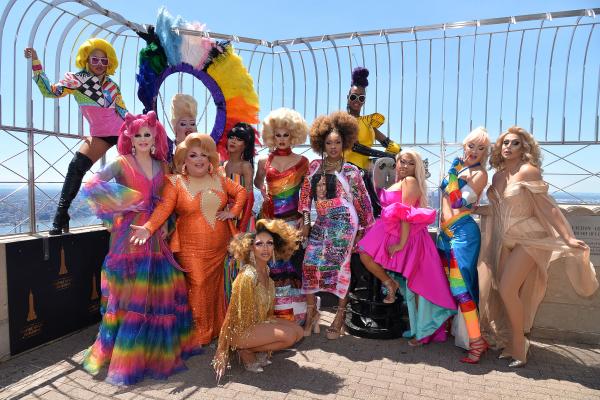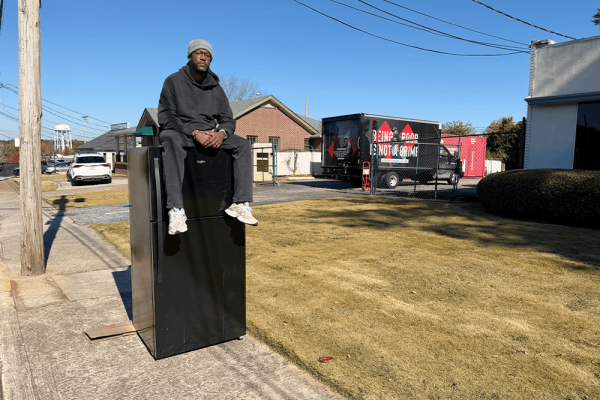On Aug. 12, my Twitter timeline exploded. Joshua Harris, the former poster boy of purity culture and patriarchy, had launched a course on how to reframe your faith story. In 2018, Harris had renounced his previous work, I Kissed Dating Goodbye, which focused on purity culture. Now Harris was saying he not only renounced his previous work, but also wanted to offer help to those who were on a similar deconstruction journey. Many who experienced harm due to Harris' work reacted to his new course by criticizing his attempt at rebranding.
I wanted to be responsible and measured with my words on social media because I knew rage would be unproductive. I also noticed the conversation was being dominated by aggrieved, white, former evangelicals sometimes known as “exvangelicals.” Harris eventually decided to cancel the course, but the damage had already been done. Those who had been negatively impacted by Harris’ work were traumatized and outraged at his attempt to profit off of harm he caused. And while it is true Harris’ work mainly impacted white evangelicals, the trauma of the purity culture movement is not exclusive to white evangelicalism.
But when I was scrolling through social media after Harris’ announcement and then renouncement, I noticed that stories about white people's experiences within purity culture dominated the discourse, leaving little room to hear from Black and brown people. I am not pointing this out to invalidate the work and efforts of people who have created spaces for those recovering from trauma. I am pointing this out because I wonder whether or not we are missing alternative avenues for healing due to the way race, sexuality, and gender impacts a person’s marketability in media and faith spaces. This is a depressing realization. So, I did what I always do whenever I’m experiencing a trigger or depressive episode: I turned on RuPaul’s Drag Race.
RuPaul’s Drag Race is a competition show that allows the best drag performers to compete for the role of America’s next drag superstar. The show’s formula has been replicated internationally on RuPaul’s Drag Race International All Stars. RuPaul’s Drag Race and All Stars have been my guilty pleasures for the past five years. There is something therapeutic about seeing transformation in real time: Eyebrows and wig caps are donned, the powder and perfume spray wafting in the air. As a queer person who enjoys RuPaul’s Drag Race, I follow the drag queens that who are marginalized by the fandom: the Black queens — the queens who have critiqued the Drag Race community. The Vixen, for instance, has spoken out against the racism of the fandom and the violence that certain Black and brown queens face as a result of appearing on the show.
As I was watching the show, I came to the realization that the drag community and those recovering from spiritual trauma have many similarities: Both communities are marginalized communities within the broader society but are often the subject of pop-culture conversations.
Both the drag community and the spiritual trauma community ignore the experiences of Black and brown people.
Jezebel reporter Joan Summers writes about the fact that there are certain styles and types of queens that tend to get more chances than others. Similarly, despite the countless critiques swirling around Harris' comeback, people have been hesitant to label him a pariah. Harris’ critics argued that his path to redemption revolved around him apologizing for the hurt he caused while also educating himself and finding a community to hold him accountable. And while that is fair to a certain extent, I found myself asking the question: Do I need another white person’s narrative of healing and recovery from the problems they’ve created?
White supremacy is responsible for creating spiritually abusive communities. As folks have begun to reckon with the rise and fall of charismatic pastors, evangelical movements, and their connections to white supremacy, the conversation around church abuse and spiritual trauma has changed. The broadening of what constitutes abuse is a positive sign, but the scope of public outrage still depends on the race, sexual orientation, and gender identity of an abuser's victims.
A similar issue of attention plagues the drag community. The contributions of trans women and queens of color are erased due to RuPaul’s Drag Race entering the mainstream. The queens who are deemed palatable or worthy of attention often reflect the white cis-gay fandom.
For the spiritual abuse community, it seems that race and gender play a role in determining who receives attention and who does not. As more people start to identify as “spiritual not religious,” pathways have opened up for people to share their stories while also creating spaces and opportunities for other people to share their stories too. Carlton Pearson, a Black man who previously pastored one of the largest churches in Tulsa, Okla., has been an advocate for LGBTQ folks and folks who are looking to leave fundamentalist spaces. The conversation on purity culture and spiritual abuse still focuses on Harris and his cis-het, white-centered context, sidelining advocates like Whitney R-E Bond who focuses on the experiences of LGBTQ people in the Black church.
Just like there is a deep and diverse history of drag that exists outside the carefully manicured world that is RuPaul’s Drag Race, there is also a deep and diverse history of prophetic voices that can offer healing from spiritual trauma.
When it comes to looking for resources or people to aid in healing from the trauma of spiritual abuse, there seems to be a vacuum. The resources, presented by Harris and others, tend to represent a certain faith experience and a particular identity. What about the spiritual trauma within historically Black denominations or progressive mainline spaces? Many of us have been forced to understand our experiences through the perspective of Harris or people like Harris.
I am tired of the narrative that spiritual trauma and recovery is only validated through proximity to white Christian praxis. Where are the stories of healing and deconstruction from Black folks who escaped the “No More Sheets” and “Pinky Promise” purity movements? Is there room in "progressive safe spaces” for BIPOC people who have been hurt not only by Harris’ work but also by the white progressive “deconstruction” market? We never get a chance to hear those stories because the pathway to healing and recovery isn’t as marketable as the stories of Harris or Raven or Trixie.
Processing this event challenged me to see whose bodies and contexts were being represented and offered as sites of healing, recovery, and redemption. Like many of us formed by traditions of conversion, we love a redemption arc; we love when a person finds truth and hope, causing them to work out their salvation through individual discernment and institutional challenge. But what are we missing when we begin to believe there is a specific formula for healing? If we only privilege one formula or a particular perspective, we lose the opportunity to offer an intersectional paradigm for liberation. For those invested in the flourishing and healing of people recovering from spiritual trauma, we owe it to ourselves and to our neighbors to explore the diverse perspectives of what reframing one’s story actually looks like.
Got something to say about what you're reading? We value your feedback!






